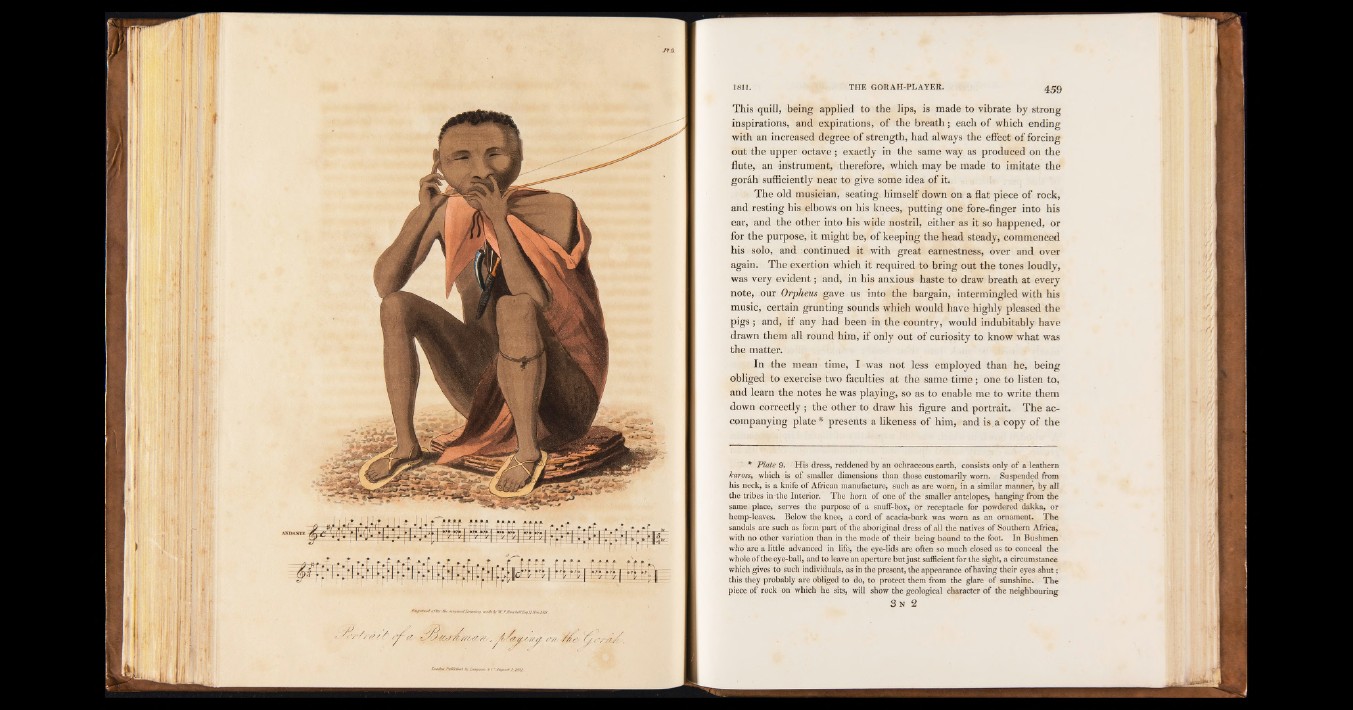
/AWtyuY'¿'/-¿i' S I
/
This quill, being applied to the lips, is made to vibrate by strong
inspirations, and expirations, of the breath; each of which ending
with an increased degree of strength, had always the effect of forcing
out the upper octave; exactly in the same way as produced on the
flute, an instrument, therefore, which may be made to imitate the
gorah sufficiently near to give some idea of it.
The old musician, seating himself down on a flat piece of rock,
and resting his elbows on his knees, putting one fore-finger into his
ear, and the other into his wide nostril, either as it so happened, or
for the purpose, it might be, of keeping the head steady, commenced
his solo, and continued it with great earnestness, over and over
again. The exertion which it required to bring out the tones loudly,
was very evident; and, in his anxious haste to draw breath at every
note, our Orpheus gave us into the bargain, intermingled with his
music, certain grunting sounds which would have highly pleased the
pigs; and, if any had been in the country, would indubitably have
drawn them all round him, if only out of curiosity to know what was
the matter.
In the mean time, I was not less employed than he, being
obliged to exercise two faculties at the same time; one to listen to,
and learn the notes he was playing, so as to enable me to write them
down correctly ; the other to draw his figure and portrait. The accompanying
plate* presents a likeness of him, and is a copy of the
* Plate 9. His dress, reddened by an ochraceous earth, consists only of a leathern
kaross, which is of smaller dimensions than those customarily worn. Suspended from
his neck, is a knife of African manufacture, such as are worn, in a similar manner, by all
the tribes in the Interior. The horn of one of the smaller antelopes, hanging from the
same place, serves the purpose of a snuff-box, or receptacle for powdered dakka, or
hemp-leaves. Below the knee, a cord of acacia-bark was worn as an ornament. The
sandals are such as form part of the aboriginal dress of all the natives of Southern Africa,
with no other variation than in the mode of their being bound to the foot In Bushmen
who are a little advanced in life, the eye-lids are often so much closed as to conceal the
whole of the eye-ball, and to leave an aperture but just sufficient for the sight, a circumstance
which gives to such individuals, as in the present, the appearance of having their eyes sh u t;
this they probably are obliged to do, to protect them from the glare of sunshine. The
piece of rock on which he sits, will show the geological character of the neighbouring